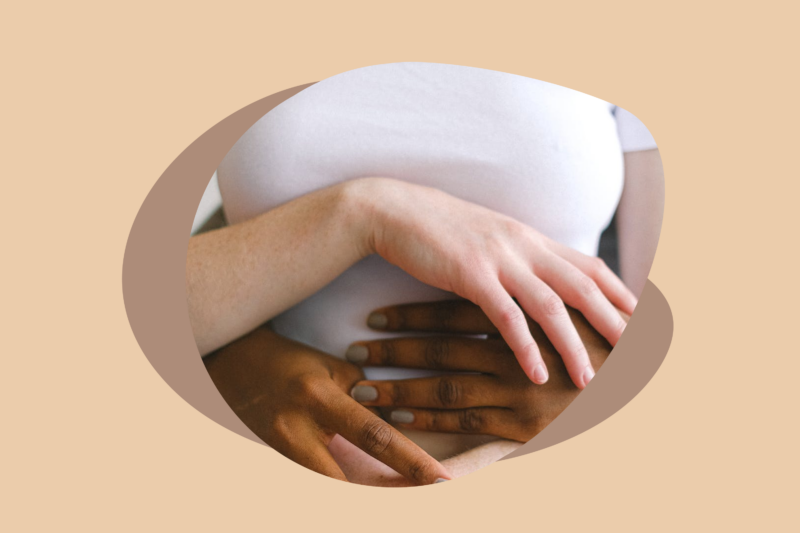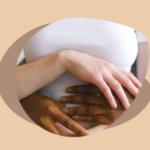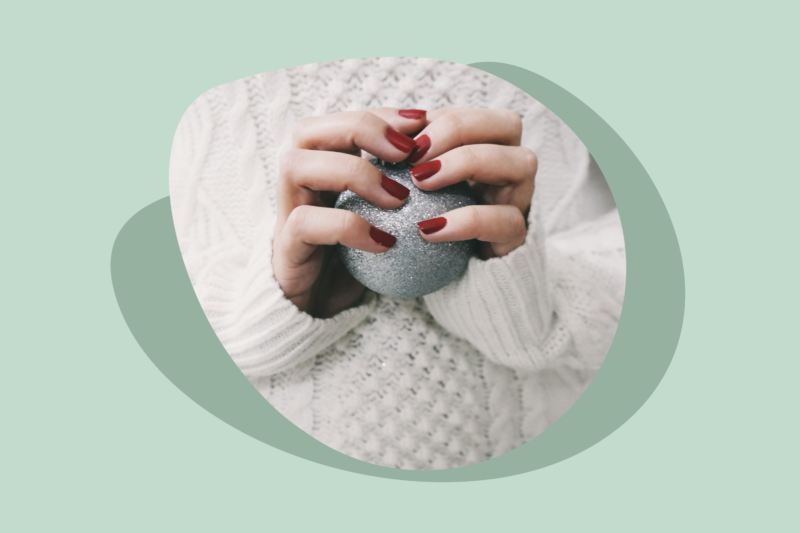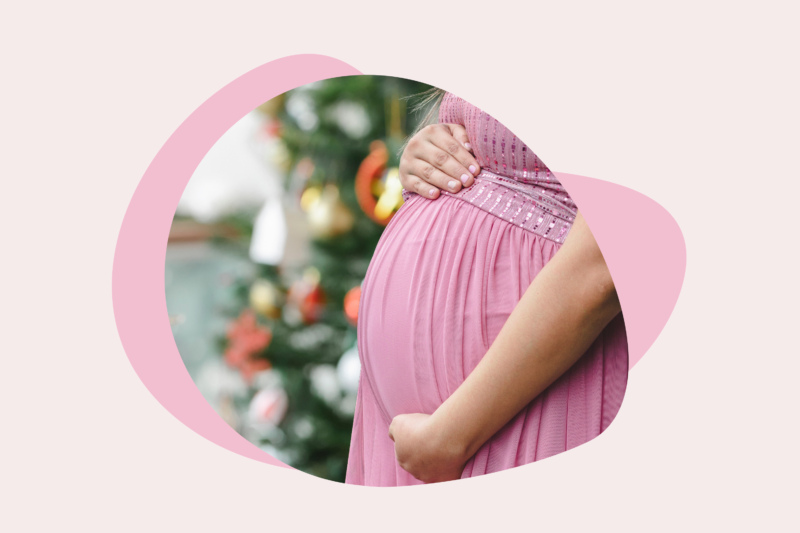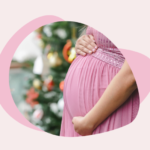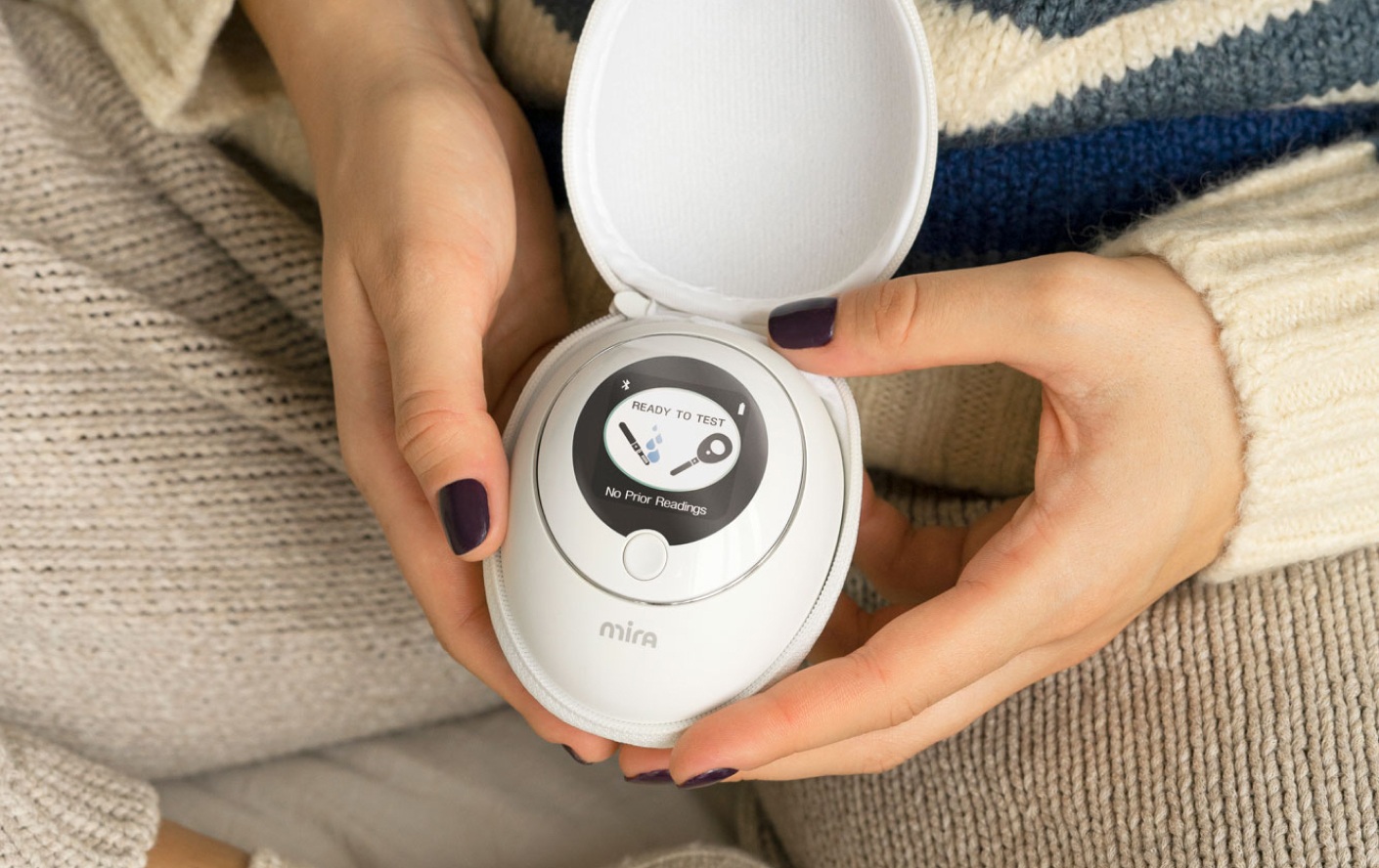Getting Pregnant in Your 30’s: Benefits, Risks, and Advice
If you are considering having a baby sometime in your life, it’s always a good idea to start planning early so you can better understand what time in your life is best for you and your partner. While women are most fertile in their 20s, increasing numbers of women are choosing to wait to have a baby so they can focus on their careers, relationships, travel, and more.
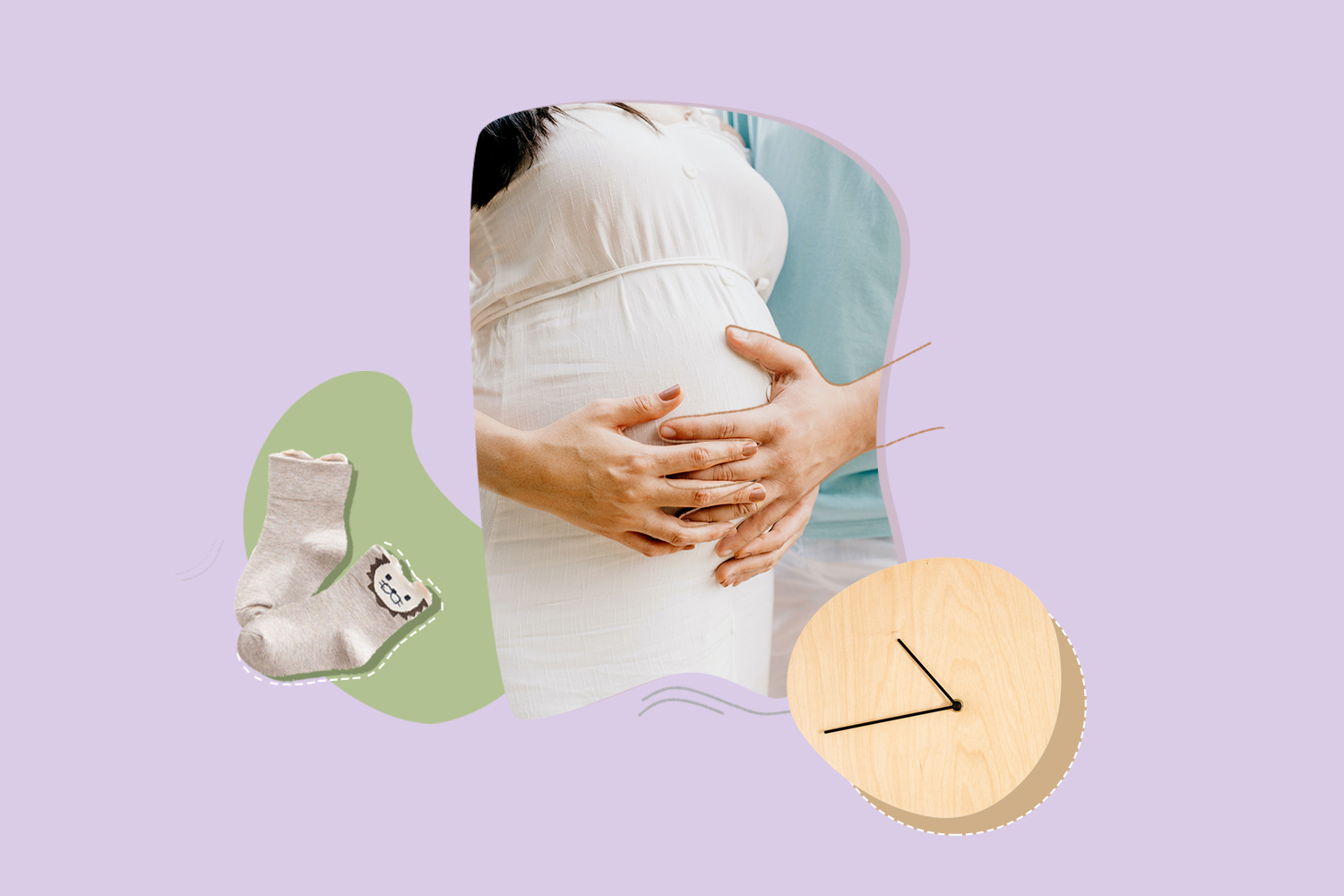
Whether you are in your 30s now and trying to conceive (TTC) or planning to have your first child in your 30s, this blog post will help you understand the benefits and risks of getting pregnant after 30 — and what you can do to increase your chances of a successful pregnancy!
What Are Your Chances of Getting Pregnant After 30?
Women are most fertile in their 20s and a woman’s fertility typically decreases predictably with age. The good news is that your fertility doesn’t change too much between your 20s and your early 30s. In her 20s, the average woman has a 25 percent chance of getting pregnant each month. By age 30, that number goes down to 20 percent.
The greatest change in your fertility during your 30s occurs after age 35. Once a woman turns 35, it becomes much more difficult to get pregnant (though it is still possible for many women to get pregnant in their 40s). According to the American College of Obstetrics and Gynecology, 1 in 10 couples conceive per menstrual cycle by age 40.
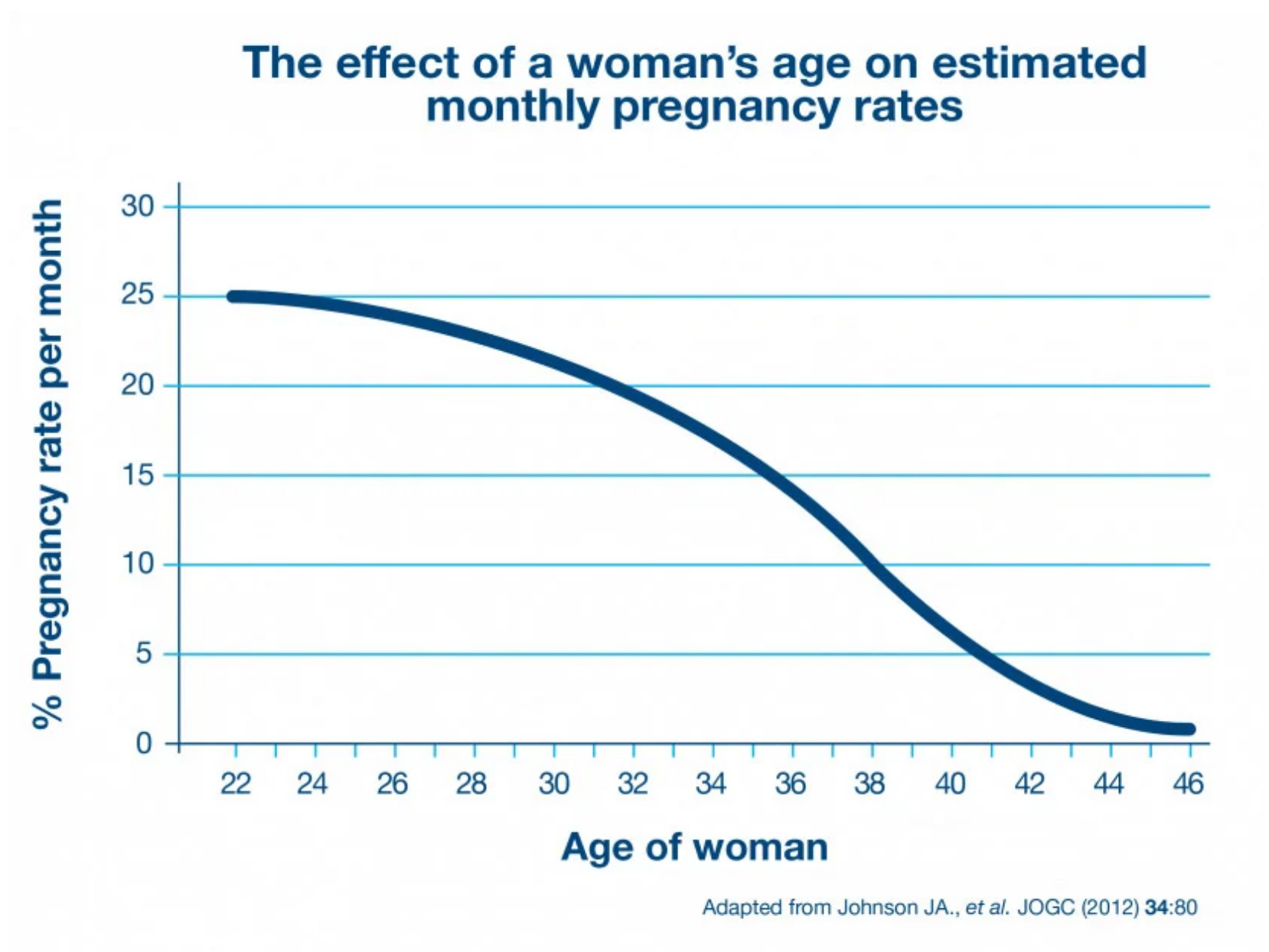
Understanding Your Fertility at 30
Why does a woman’s fertility decrease so predictably with age? As babies, we are born with all the eggs we will ever have in our lifetime. Unlike men, who continually produce sperm, women cannot make new eggs after they are born.
The average girl is born with approximately one million potential eggs (in the form of ovarian follicles). By your first period, this number has already shrunk to around 300,000. During the average woman’s reproductive life, only 300 to 500 eggs will mature enough to potentially form a pregnancy.
This means women already have a limited supply of eggs — and, as we age, our eggs decline in quantity and quality. Some eggs die off; others experience natural genetic mutations with age that prevent them from becoming a healthy pregnancy. Here’s what your egg quality and quantity looks like in your 30s.
Egg quantity
Women are born with around one million eggs. By the time you turn 30, only 90 percent of those eggs remain. The good news is that your egg supply remains fairly stable in your early 30s. In your early 30s, your fertility declines gradually — but after age 35, fertility decreases at a much more rapid rate. By age 40, the average woman’s ovarian reserve measures between five and 10,000 immature eggs.
Your doctor can estimate your ovarian reserve by measuring your levels of anti-Mullerian hormone. In-vitro fertilization (IVF) can help if you are having difficulty getting pregnant due to a low ovarian reserve. In a normal cycle, only one egg matures enough to get released by the ovary and potentially fertilized. During an IVF cycle, however, medications can be used to “trick” the body into producing as many as 100 mature eggs per month.
Egg health
Unfortunately, measuring your fertility in your 30s is not as simple as counting the number of eggs in your supply. As a woman gets older, the health of her eggs gradually declines as well. More and more of our eggs develop genetic mutations as we age. They may contain too many or too few chromosomes, meaning that they may result in a child with birth defects or be unable to grow into a mature fetus at all. Egg quality gradually declines in your 30s. By age 30, nearly a third of a woman’s eggs are considered genetically abnormal. By age 35, more than one third are abnormal — and by 40, more than half.
This significantly raises the risk of birth defects in babies born to women over age 35. In mothers who are 30 years old, 1 in 952 babies is born with Down syndrome, a defect caused by a third copy of chromosome 21. By the time the mother is age 35, that number grows to 1 in 378 live births. Currently, there is no test to measure egg quality the same way we measure quantity. However, IVF technology can help control egg quality, either via pre-implantation genetic testing or using a donor egg from a younger woman.
Benefits of Getting Pregnant After 30
Planning to have a baby is a big decision that shouldn’t be taken lightly. While women may be the most fertile in their 20s, getting pregnant in your 20s isn’t right for everyone. You may prefer to have a baby in your 30s, when you are in better physical shape, have a healthier lifestyle, and are more secure in your career.
Physical condition
Many women in their 30s claim to be in much better shape than they were at age 20. This could be for a number of reasons. Some women may not have worked out at all at age 20 because they thought they didn’t need to or because they could maintain their weight without exercise. Others may have more time to exercise in their 30s than they did in their 20s when they were working their way up the career ladder. Either way, physical fitness is an important factor in having a healthy pregnancy — and it’s certainly possible that you are more physically fit in your 30s than you were in your 20s.
Healthier lifestyle
By their 30s, most women also lead a healthier lifestyle with more consistent routines. Whereas you may have subsisted on a diet of coffee and ramen noodles in college, many women adopt healthier cooking and eating habits when they are in their 30s and can afford to purchase higher-quality groceries.
You may also be getting much more sleep than you did in your 20s. Many women in their 20s have inconsistent sleep schedules due to school or work, and may even pull frequent all-nighters. By the time you are in your 30s, you should have established a more consistent sleeping and waking schedule. Both of these changes to your lifestyle prepare your body for a healthier pregnancy.
Financial stability
It’s no secret that having a baby can be a drain on your financial resources, especially if you are unprepared. Many women in their 20s don’t even know what they want to do with their lives, let alone whether they want to get pregnant yet. Having a baby in your 20s gives you less time in the workforce to make a consistent salary, save money, and work your way up the career ladder before giving birth to your first child.
On the other hand, planning for your first pregnancy in your early 30s may give you more time to save up for those first-baby expenses, like a stroller or car seat, and to find a career path you’re passionate about before taking maternity leave.
Risks of Getting Pregnant in Your 30s
Like any pregnancy, getting pregnant in your 30s comes with risks. Certain complications — such as miscarriage, Down syndrome, and multiples — may be more likely to occur in a mother who is over 30 years old. These risks can be mitigated by getting reliable prenatal care and giving birth in a facility ready to care for high-risk mothers and their babies.
Miscarriage
Mothers over age 30 should prepare for the possible physical and emotional consequences of pregnancy loss. Studies show that the risk of miscarriage is lowest in mothers ages 25 to 29 and rises rapidly after age 30. Most miscarriages are caused by genetic defects that make an embryo unable to survive.
As we already know, these genetic defects become more prevalent in the eggs as a woman ages. Still, the overall risk of having a miscarriage is still low for women in their early 30s. At age 30, about 12 percent of pregnancies end in miscarriage, rising to 18 percent by age 35. Your risk of having a miscarriage is higher if you have already had one or more miscarriages in the past.
Most women will get a normal period again four to six weeks after a miscarriage, after which point it is usually safe to attempt conception with your doctor’s approval. Understandably, however, it can take much longer than that to recover emotionally from the grief of losing a child.
Down Syndrome
As we mentioned previously, Down syndrome and other genetic defects are more common in children born to women over age 30 due to declining egg quality. Down syndrome is the most common chromosomal defect in the United States. It is caused by a specific mutation called trisomy 21, where babies are born with three copies of chromosome 21 (as opposed to the usual two).
At age 25, about 1 in 1,250 pregnancies will result in a baby with Down syndrome. By age 40, the incidence rises to 1 in 100. Your risk of having a baby with Down syndrome is higher if you have already given birth to a child who has it. Down syndrome leads to changes in physical appearance as well as certain health problems, such as learning disability and heart defects. Thankfully, most children with Down syndrome are able to live happy, long lives with special education and support.

A little extra support from an expert can go a long way
Book an online consultation with one of our Hormone Health Coaches.
Schedule NowMultiples
A multiple, or multiple pregnancy, occurs when a woman gives birth to more than one child at once. Women over the age of 30 are more likely to conceive twins than younger women. This is due to the fact that levels of follicle-stimulating hormone (FSH) rise as we grow older.
FSH is responsible for the development of follicles in the ovaries. As a woman ages, more FSH is needed to stimulate the follicles to grow and release an egg — but sometimes, the follicle over-responds to the extra stimulation by releasing a second or even a third egg. This can result in two or more babies being carried by the mother at once.
The greatest risk in a multiple pregnancy is premature birth, which occurs in about 60 percent of twin pregnancies. These babies may be born with low birth weights and require intensive care, but can often go on to live healthy and full lives.
Advice for Getting Pregnant After 30
Getting pregnant after age 30 isn’t as simple as having sex during ovulation, taking your prenatal vitamins, and quitting alcohol. It’s important to do everything you can to support a healthy pregnancy. Here is some advice you may want to keep in mind when trying to conceive in your 30s:
- Track your hormones. Hormone testing can make the journey to conception much easier by helping you identify when the best times to have sex are in order to get pregnant. Mira’s advanced hormone tracking system allows you to pinpoint your ovulation with 99 percent accuracy without needing to visit a lab and we even wrote a guide to the best positions to try when TTC.
- Maintain a balanced lifestyle. Proper nutrition and exercise prepare your body to take care of a growing fetus. However, stress can also negatively impact your fertility, so it’s important not to push yourself too hard. Ask your doctor for advice on nutrition and safe exercises to engage in when trying to conceive — and, of course, don’t forget your prenatal vitamins!
- Seek support when needed. Getting pregnant can be a long journey, especially after age 30. When conceiving takes longer than expected, you might find yourself filled with emotions. Make sure you have friends and family you can reach out to for support when you need it. You can also join our free Facebook group, Mira Fertility Club, to connect with other women who are trying to conceive.
- Monitor problems closely. As we mentioned earlier, getting pregnant after age 30 is associated with certain risks to your health and the health of your baby. It’s important to monitor any potential problems closely from the start to ensure you get the best prenatal care possible. Make sure that the hospital where you are giving birth is also prepared to support a potentially high-risk pregnancy.
- Consider genetic testing. Certain genetic screening tests can prepare you to deal with a baby who has special needs or health risks that may require intensive care. Carrier screening tests can be performed on you and your partner before getting pregnant to see if you are carriers of certain genetic diseases. Once you are pregnant, maternal blood and amniotic fluid can be tested for certain disorders and defects as well.

When to Seek Help
Even with fertility treatment, your chances of getting pregnant decline significantly after age 35. Thus, it’s important to seek help for fertility issues as soon as you recognize a potential problem. In general, you should visit your OB/GYN or a fertility specialist if:
- You have been trying to get pregnant for a year (under age 35)
- You have been trying to get pregnant for six months (under age 35)
- You have endometriosis, PCOS, or another health condition impacting fertility
- You have had difficulty conceiving in the past
- You have had multiple miscarriages in the past
Mira’s Editorial Process
All content produced by Mira meets stringent editorial standards, ensuring excellence and accuracy in language and medical precision. Every piece undergoes thorough fact-checking and review by qualified professionals. Check out our full editorial process to learn more.


